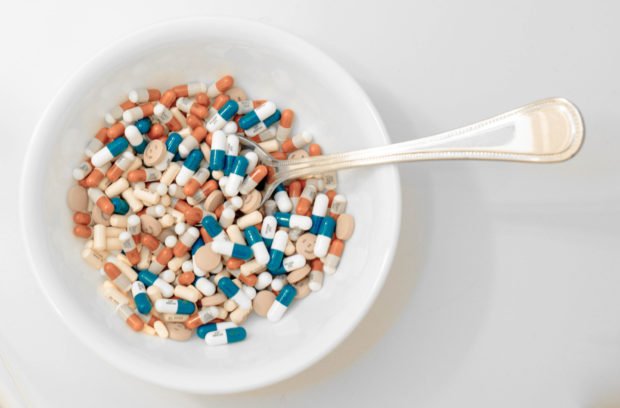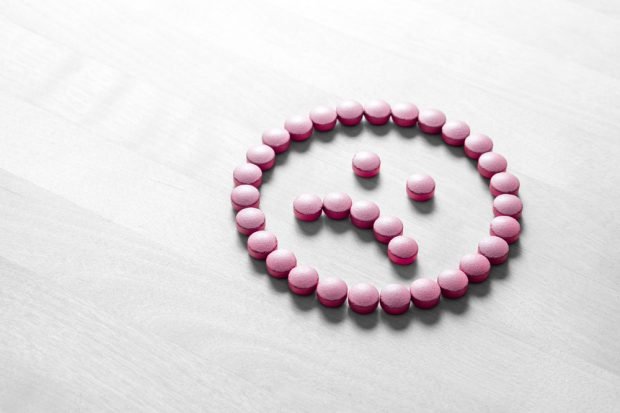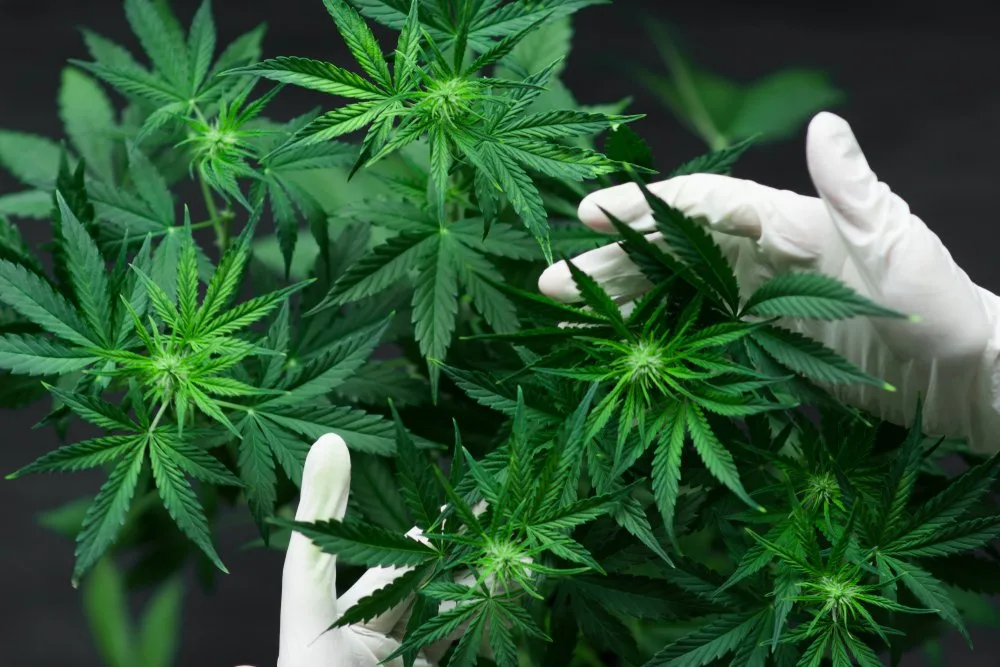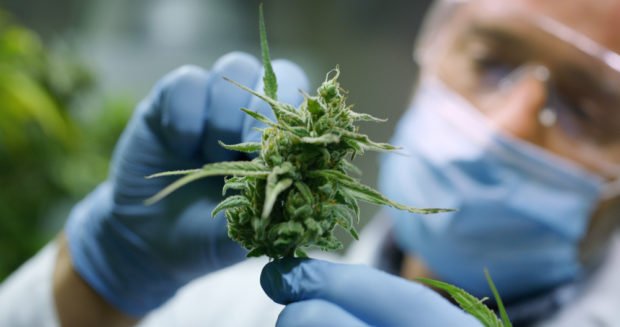According to the World Health Organization, depression affects over 300 million people across the world and it is also the leading cause of disability worldwide (1). Furthermore, the annual American Psychology Association revealed that around 75% of Americans are either “physically or psychologically” stressed. That said, how are individuals attempting to remedy a condition called depression? The most notable of these treatments are antidepressants. However, there is a growing trend of conscious consumerism and a desire for more natural treatments. That said, the cannabis plant may be able to take the place of these drugs. Patients who live in states where medicinal cannabis is legal, such as West Virginia, can get a medical marijuana card in order to start combating their pain naturally. Of course, marijuana abuse and addiction are very prevalent and one can get help for it at a marijuana treatment facility also known as a weed addiction rehab.
In Florida (and several other states), there are other requirements for obtaining medical cannabis. There are certain qualifying condtions—again, varying by state—patients must have in order to qualify for medical marijuana. For the Sunshine State, Florida marijuana doctors must provide a recommendation to patients before they can even acquire a medical card. It’s a similar procedure in other states like Ohio, Missouri, and West Virginia, where medical marijuana is now legal.
According to the Centers for Disease Control and Prevention, the use of antidepressants has shot up in recent years, with 1 out of every 8 Americans regularly taking a prescription antidepressant (2). However, as the long-term effects of drug use continue to plague society, researchers have now begun to look at medical cannabis as an alternative, or at least an additional, form of treatment.
The age of medical cannabis
Cannabis continues to be a controversial plant. As a result, a lot of people are unaware of the medicinal and therapeutic benefits that it can bring.
As of late, the use of medicinal cannabis has been touted as the answer to the opioid epidemic in terms of pain management. There has been a body of research over the past few years that has highlighted the effective role that cannabis can play in terms of pain management (3, 4, 5).
There have also been other studies that have shown how cannabis can be used to address health issues such as multiple sclerosis and chemotherapy-related symptoms. That said, it is possible that cannabis could be highly effective in helping with depression.
But wait, what about antidepressants?
Anti-depressants are prescription psychiatric drugs that help treat mood disorders. They do this by targeting and balancing out certain brain chemicals that affect behavior and mood. These chemicals include dopamine, serotonin, dopamine, and norepinephrine. The mood disorders range from depression and anxiety to Bipolar disorder and schizophrenia.
Depending on the mood disorder it’s meant to address, each antidepressant will have a different effect on the brain. Patients will also respond differently to different types of antidepressants. The most common antidepressants used include:

- Selective Serotonin Reuptake Inhibitors (SSRIs): The most commonly prescribed antidepressant whose function is to either increase the levels of the happy chemical serotonin or stabilize mood by blocking the absorption of serotonin in the brain. The most popular SSRIs are Prozac, Paxil, Zoloft, Celexa, and Lexapro.
- Serotonin and norepinephrine reuptake inhibitors (SNRIs): Examples of SNRIs include duloxetine (Cymbalta) and venlafaxine (Effexor XR).
- Norepinephrine and dopamine reuptake inhibitors (NDRIs): Often prescribed for ADHD, examples include bupropion (Wellbutrin, Aplenzin, Forfivo XL).
- Monoamine oxidase inhibitors (MAOIs): Examples include tranylcypromine (Parnate), phenelzine (Nardil), and isocarboxazid (Marplan).
- Tricyclic antidepressants: Examples include imipramine (Tofranil), amitriptyline, doxepin, trimipramine (Surmontil).
What are their risks?
At the end of the day, antidepressants are still a drug. This then means that there exists a risk of dependency and addiction.
A study from the University of Auckland, with a total number of 1829 New Zealanders as participants, attempted to track long-term use of antidepressants and issues of withdrawal and addiction. 44% of the participants revealed that they had been taking antidepressants for more than three years and were still taking them. Furthermore, 1367 of them filled out the section related to withdrawal symptoms. Of this number, 54.9% reported some withdrawal effects, with 25.1 percent reporting the effects as severe, while 45.1 percent of participants reported no symptoms.
Additionally, out of the 1521 people who filled out the section on addiction, 72% percent reported antidepressants were ‘not at all’ addictive. Yet, 27.4% reported some level of addiction. Of those reporting some level of addiction, 6.2% described the addiction as severe, 9.4% as moderate, and 11.8% as mild.
What are the additional risks?
According to Harvard Health, there are additional side effects, whilst mild, that antidepressants may cause include insomnia, skin rashes, headaches, joint and muscle pain, stomach upset, nausea, or diarrhea. These drugs may also affect your sexual health and function. Moreover, the potential risk of blood clotting and internal bleeding also exists. Tricyclic antidepressants may disturb heart rhythms and cause dizziness (6).
As if that wasn’t enough, stopping your intake of antidepressants can come with its own side effects, known as Discontinuation syndrome. Symptoms include dizziness, loss of coordination, fatigue, tingling, burning, blurred vision, insomnia, and vivid dreams. Less often, there may be nausea or diarrhea, flu-like symptoms, irritability, anxiety, and even crying.
Cannabis and psychiatric disorders
Cannabis and depression
As mentioned, serotonin is responsible for helping to manage a person’s emotional state and feelings of happiness. So, to treat depression, the priority is often to balance serotonin levels. That said, proponents of medical cannabis believe the cannabinoid found in the plant, CBD, interacts positively with serotonin.
What does the research say?
Researchers from Washington State University used a mobile app to examine how well medical cannabis alleviated symptoms of depression, following a single puff of cannabis that was high in CBD and low in THC (tetrahydrocannabinol). THC and CBD are the two most common cannabinoids found in cannabis. Cannabinoids are chemical compounds that act on cannabinoid receptors in the endocannabinoid system. These cannabis-based products can be found on cannaflower.com.
Using an app called Strainpoint, the researchers had participants enter the name of the strain and rated the severity of their depression symptoms and then 20 minutes later they entered how many puffs they took along with a new symptom rating. Following this, the researchers pulled data from over 12,000 responses.
The study revealed that 89% of participants reported a before-and-after decrease in symptom severity for depression. It appears that just one puff was enough to alleviate their depressive symptoms.
 However, does cannabis use increase the risk of depression?
However, does cannabis use increase the risk of depression?
The study does acknowledge the effects that cannabis can have on depressive symptoms. However, the researchers did note that the long term usage of cannabis resulted in an increase in depressive symptoms.
“Importantly,” the study authors conclude, “while acute cannabis intoxication temporarily alleviates perceived states of depression, anxiety, and stress, the repeated use of cannabis does not appear to lead to any longer-term reductions in these symptoms.”
Additionally, a separate study from McGill University and the University of Oxford found an association between cannabis use amongst adolescents and a significant increased risk of depression and suicidality in adulthood. For the study, the two institutions reviewed and analyzed the best existing evidence as well as 23,317 individuals (from 11 international studies).
“While the link between cannabis and mood regulation has been largely studied in preclinical studies, there was still a gap in clinical studies regarding the systematic evaluation of the link between adolescent cannabis consumption and the risk of depression and suicidal behavior in young adulthood,” Explained Dr. Gabriella Gobbi, Professor, Department of Psychiatry, McGill University and a scientist at the Research Institute of the McGill University Health Centre, “This study aimed to fill this gap, helping mental health professionals and parents to better address this problem.”
With the above-mentioned studies in mind, it’s clear that there is still a need for more studies.
Cannabis and panic and anxiety disorders
Did you know that an estimated 264 million of the global population is suffering from anxiety? Additionally, around 2.4 million Americans have panic disorders in a given year.
According to a study published in the journal Current Neuropharmacology, a single dose of 300 mg of CBD resulted in a significant decrease in anxiety levels. Additionally, a 600 mg dosage caused a notable reduction in anxiety levels in people with social anxiety disorders.
That said, it should be noted that cannabis strains that have high doses of THC may increase anxiety levels. It may even trigger a panic attack. That said, if one is looking to use cannabis to address their anxiety, it is advisable that they choose a strain that is high in CBD. In doing so, the CBD will counteract the adverse effects of THC.
Cannabis and PTSD
There is a consensus that cannabis can help to reduce PTSD symptoms, particularly in veterans. In fact, one study found that 65% of people with PTSD had used cannabis at one point in their lives.
PTSD causes an imbalance of neurotransmitters in the brain, yet the use of cannabis may help to restore balance.
According to a comprehensive review published in The Mental Health Clinician journal, the use of medical cannabis may help address a variety of PTSD symptoms. However, the researchers did admit that they did not have enough studies to work with.
Cannabis and schizophrenia
According to a study published in The American Journal of Psychiatry, CBD possesses antipsychotic properties, with reports of reduced symptoms and improved cognitive performance.
That said, separate studies have found a potential link between high THC doses and psychotic symptoms, including paranoia (7, 8). Additionally, the risk is increased if the cannabis user already has a family history of mental health disorders.
What about cannabis and psychotherapy?
Psychotherapy may be a place for cannabis use.
Some patients have reported experiencing some form of anxiety ahead of their therapy appointments. As a result, this can make them standoffish and affect the quality of their sessions. However, using cannabis before the session may make the patient feel more relaxed and willing to open without any inhibition.
Can we combine the use of antidepressants and cannabis?
Unfortunately, studies into the effects of using both cannabis and antidepressants are limited. However, there are a few things to keep in mind when it comes to how cannabis can influence antidepressants.
Most patients do not report their cannabis use to their doctors. This, then, is one of the reasons why studies into how drugs interact are so limited. In fact, a report published in the Journal of Substance Abuse Treatment revealed how there have been few reports documenting the adverse effects arising from using the two drugs at the same time.

Secondly, there is also the fact that, as different antidepressants exist, cannabis will likely interact differently with each drug. In doing so, different people will then experience different side effects. A case report published in the journal Canadian Family Physician revealed the story of a 17-year-old boy who was battling depression and has thus been prescribed with the tricyclic antidepressant, amitriptyline. According to the report, the young man was checked into the emergency room for tachycardia (a racing heartbeat that can increase the risk of stroke, sudden cardiac arrest, and death). His parents soon discovered that he had been using cannabis.
Until you speak to your doctor, it’s paramount that you do not combine cannabis and your prescribed antidepressant.
Treating depression
The treatment of depression includes psychotherapy, or in severe cases, prescribed antidepressants. Unfortunately, these pills may come with potential side effects thus individuals are looking out for more natural treatments.
That said, it’s important to speak to your doctor before using cannabis or CBD for depression. Furthermore, the Food and Drug Administration (FDA) does not regulate CBD products. Thus, it’s important to ensure that you buy your CBD capsules, and oils from reputable companies.
Coping with depression
Taken from Mental Health America, listed below are tools for improving your mental health when battling depression:
- Get the care you need.
- Slow down and take it one thing at a time.
- Know your limits.
- Practice stress reduction techniques.
- Know your triggers.
- Talk to someone.
- Plan your sleep schedule.
- Watch what you eat.
- Exercise.
- Do something you enjoy.
- Connect with others.
***
If you or a loved one needs help please reach out to a center near you. In most countries, there are support groups on hand to help, including national suicide prevention and addiction centers.



 However, does cannabis use increase the risk of depression?
However, does cannabis use increase the risk of depression?![women [longevity live]](https://longevitylive.com/wp-content/uploads/2020/01/photo-of-women-walking-down-the-street-1116984-100x100.jpg)










